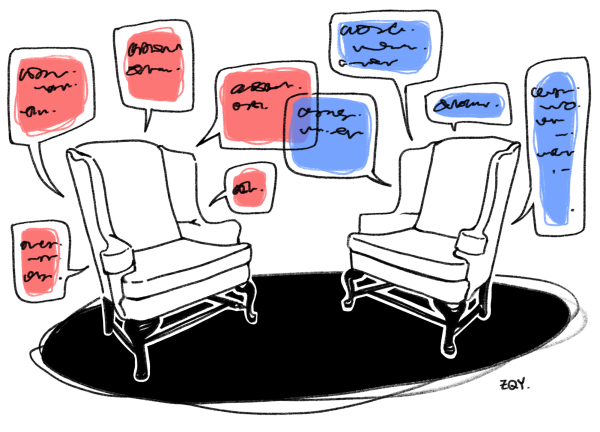Revitalize Groton’s Legacy: A Defense of Moderates
 Today’s politics are characterized by unprecedented polarization, a lack of decency and hardline partisan culture. The combination of these factors, along with the Democrats’ thin Senate lead, have reduced President Biden’s legislative ambitions to shambles. Nonetheless, the brunt of the resulting frustration has been primarily cast at two individuals: West Virginian Democrat Joe Manchin and his Arizonan colleague Kyrsten Sinema. From fierce media backlash to in-person harassment, the two representatives from traditionally GOP-led states have faced severe repercussions from within their party for failing to support some of the larger, costlier pieces of legislation touted by President Biden.
Today’s politics are characterized by unprecedented polarization, a lack of decency and hardline partisan culture. The combination of these factors, along with the Democrats’ thin Senate lead, have reduced President Biden’s legislative ambitions to shambles. Nonetheless, the brunt of the resulting frustration has been primarily cast at two individuals: West Virginian Democrat Joe Manchin and his Arizonan colleague Kyrsten Sinema. From fierce media backlash to in-person harassment, the two representatives from traditionally GOP-led states have faced severe repercussions from within their party for failing to support some of the larger, costlier pieces of legislation touted by President Biden.
Certainly, neither Sinema nor Manchin are model centrists in Congress (Siema votes with Biden 98% of the time, while Manchin follows closely with 95%). However, the reactions that ensue from their party whenever they deviate from the majority opinion are indicative of the rising intolerance for disagreement and discourse within the government. This will likely also be reflected on the other side of the aisle in the coming midterm elections, as moderate Republicans vie for the party’s support with candidates endorsed by former President Trump.
Politically, the decline of moderates in recent years has had vast implications in our politics. The cold-shouldering of moderates has made them less inclined to participate in democratic processes. For example, the turnout in primaries has consisted of more extreme partisan voters, shifting the political climate in favor of more radical and populist candidates. Tactics such as gerrymandering are vigorously employed in a partisan manner to guarantee electoral vantage. Resultantly, politicians are increasingly less reflective of their constituencies, which in turn erodes trust in American democracy by contradicting the notion that it seeksto serve the people. If moderates were to have a resurgence in the political field, it would enable voters to elect candidates more representative of the broader population, increasing political engagement and enthusiasm.
A unique aspect of the nature of American political division is that it is not necessarily a disagreement of principles. The vast majority of Americans, regardless of party affiliation, actually share a common appreciation for certain fundamental values, namely individual liberty and equality. The tensions arise when it comes to the visions for implementing these values into society, which vary widely among the population. Moderates play a pivotal role in this discourse because their more tame perspectives provide a holistic view of issues and their viewpoints bridge the ideological gaps that exist between more extreme sides. This bringing together of different views allows for political efficiency and productivity, which are historical hallmarks of American government, but should moderates disappear from the halls of the Capitol, these characteristics will be jeopardized.
My home district, Pennsylvania’s First, is swing election territory and nearly evenly divided by party registration numbers. Thus, I have grown up in an environment where disagreement and interactions between different viewpoints are commonplace. When I arrived at Groton, I immediately took notice of the heavy leftist skew of campus political culture, which is not inherently a negative trait by any means. However, what also stood out was the widespread disregard for conservative and even moderate viewpoints, which seem to carry a negative connotation at Groton. This closely parallels the situation playing out on the national level, with perspectives being shut out in favor of avoiding discourse, causing a severe political slant in culture.
To be clear, I advocate not for abandoning principles, but to avoid being constrained by a single vision of them. For an institution that has such a rich legacy of producing courageous individuals who stand steadfast to their values, it would be a shame not to follow in their footsteps.





